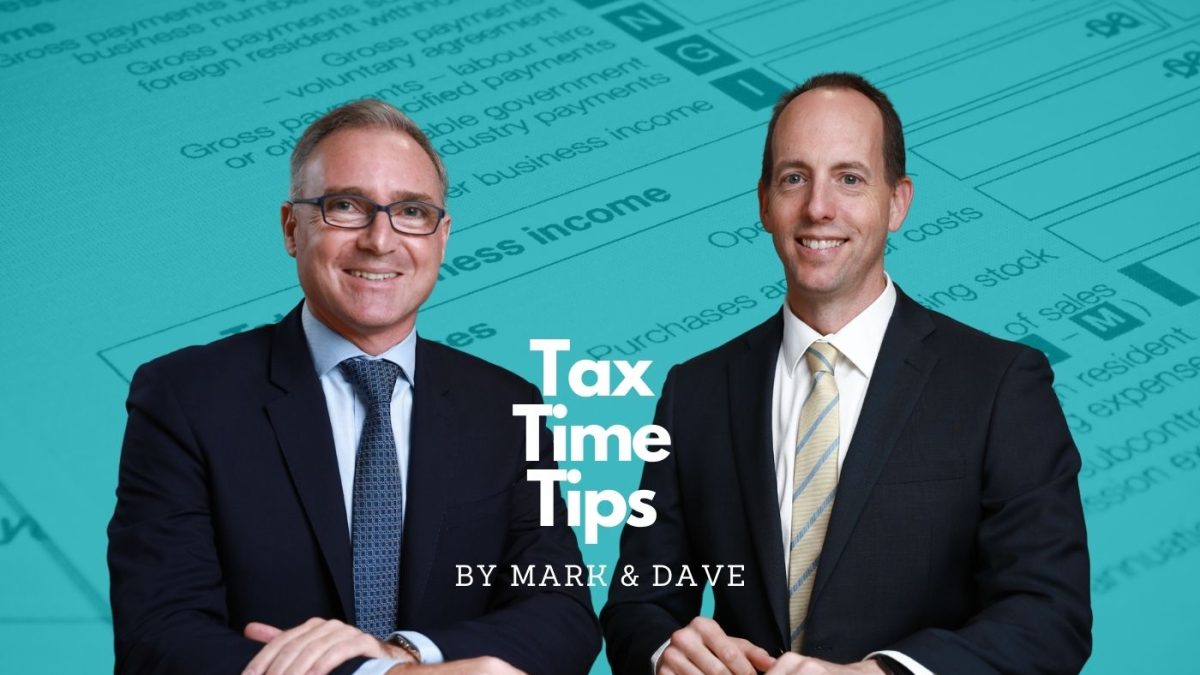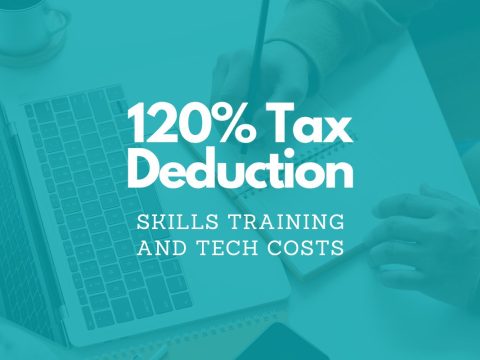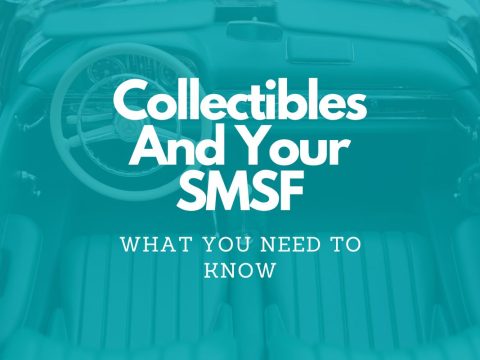Tax Time Tips FY2022
By David Downie and Mark Copsey
Welcome to our special Tax Time edition. With 30 June looming, we would like to share some tax tips that you may be able to implement before the end of the financial year to help minimise your tax bill.
Especially with the economic uncertainty that businesses of all sizes are facing, it’s well worth doing everything in your power to ensure an optimal tax outcome this EOFY.
You really can save thousands just by implementing some of these strategies, which we are very happy to assist you with if you have any questions along the way.
So here’s the list for FY2022…
Making payments and purchases before 30 June
- If your cash flow allows, making purchases of consumables and other deductible expenses (including services such as repairs) will further reduce your tax liability.
- This also applies to pre-payments for relevant expenses by 30 June (e.g. insurance, rent and interest payments).
- You can also consider charitable donations to eligible organisations with DGR status.
Claiming expenses before spending
- By claiming expenses that have been “incurred” but not paid by 30 June, businesses operating on an accruals basis are able to get certain deductions for these. Such expenses include staff bonuses, directors’ fees, and repairs and maintenance, as long as your business is “definitely committed” to paying these.
Buying plant and equipment
- Small businesses looking to buy plant and equipment could consider bringing forward the purchase to take advantage of the temporary full expensing rules which have been extended to 30 June 2023 in the Federal Budget. Note: this includes second-hand assets for businesses with a group turnover of less than $50M.
Ensuring staff superannuation is paid
- Super payments need to be received by employees’ funds by 30 June, otherwise they will not be deductible until the following year. If you make staff superannuation payments to the Small Business Superannuation Clearing House, these need to be paid by 23 June to ensure they are deductible this financial year.
Maximising your own superannuation cap
- By contributing extra amounts to your superannuation, you will minimise your own tax bill. However, ensure you don’t exceed the super contribution caps. Since 2019, for balances below $500,000, contribution shortfalls from prior years can be carried forward up to 5 years.
- Again, if you wish to claim a deduction, personal super contributions need to be received by your fund by 30 June.
Deferring income
- If possible regarding your cash flow, consider delaying job completion and invoicing until 1 July. This will enable you to defer your tax liability to the following financial year. We recommend that you speak with a professional to work on a budget to keep track of this and minimise negative cash flow impacts.
Paying employee bonuses
- Bonuses for employees or directors do not need to be paid by 30 June in order to be tax deductible in the current financial year, provided a director’s resolution specifying amounts to be paid is made by 30 June.
Minimising Capital Gains Tax (CGT)
- This is often about timing, and whether your assets have been owned for more than 12 months. Also, check if your business qualifies for any capital gain rollover relief concessions or the Small Business CGT concessions. Finally, if you already have a capital gain, check whether any investments are making a loss and should be sold.
Doing a complete stocktake
- You’ll have a much clearer understanding of where your business is at with stock, and whether any is defunct or out of date. This is important as the value of closing stock affects your business profit, and the higher that is, the higher your tax.
- By 30 June, collect evidence of any obsolete stock and quantify the amount to be written off in order to claim a deduction for this tax year.
Revisiting related-party transactions
- For companies, ensure that minimum loan repayments are made by 30 June with respect to relevant loans to shareholders and associates in order to avoid deemed dividends arising for tax purposes.
- For assets of a company used for private purposes, ensure that market rate rental fees have been paid to the company, again in order to avoid deemed dividends.
Writing-off bad debts
- Having reviewed your aged receivables, you may decide to write-off some bad debts by 30 June in order to claim a dedication for this tax year.
- As in the case of employee bonuses, you will require a director’s resolution specifying the amounts to be written-off.
Making trust distribution resolutions
- Resolutions to distribute trust income for the year generally need to be made by 30 June in order to be effective. We can always assist you in drafting your resolutions as part of your tax planning for the year.
If you need any assistance working through these tips and applying any of them to your own situation, please don’t hesitate to contact us. One of our friendly team members will be very happy to explore any issues or opportunities with you, and advise you on the best course of action.
It always pays to plan your tax affairs well in advance with the help of experienced professionals, so if you’re interested in getting ahead of the FY23 tax year, get in touch for a no-obligation chat!
IMPORTANT NOTICE
This blog post contains general information only and has been prepared by Allworths without reference to your objectives, financial situation or needs. Allworths cannot guarantee the accuracy, completeness or timeliness of the information contained here. By making this information available to you, we are not providing professional advice or recommendations. Before acting on any of the information contained here, you should seek professional advice.




